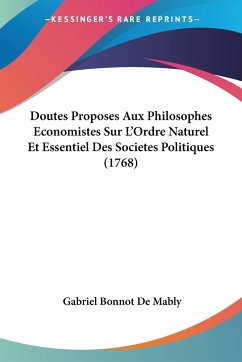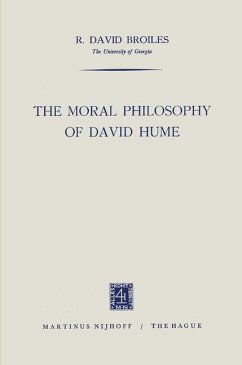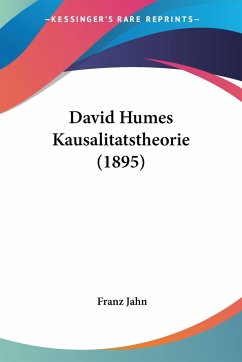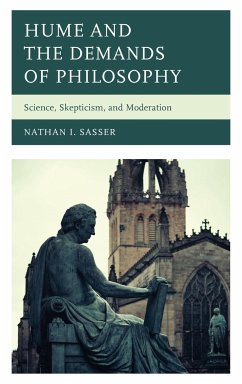
Discours Politiques De David Hume (1754)
Versandkostenfrei!
Versandfertig in 1-2 Wochen
33,99 €
inkl. MwSt.

PAYBACK Punkte
17 °P sammeln!
Discours Politiques De David Hume (1754) is a book written by the Scottish philosopher David Hume. The book is a collection of Hume's political essays, which were originally published in the mid-18th century. The essays cover a wide range of topics, including the principles of government, the nature of political power, and the role of religion in society. Hume's writing is characterized by a clear and concise style, and his arguments are based on careful observation and analysis of human behavior. The book is an important contribution to the field of political philosophy and remains relevant t...
Discours Politiques De David Hume (1754) is a book written by the Scottish philosopher David Hume. The book is a collection of Hume's political essays, which were originally published in the mid-18th century. The essays cover a wide range of topics, including the principles of government, the nature of political power, and the role of religion in society. Hume's writing is characterized by a clear and concise style, and his arguments are based on careful observation and analysis of human behavior. The book is an important contribution to the field of political philosophy and remains relevant to contemporary debates about the nature of democracy, the role of government, and the relationship between religion and politics.This scarce antiquarian book is a facsimile reprint of the old original and may contain some imperfections such as library marks and notations. Because we believe this work is culturally important, we have made it available as part of our commitment for protecting, preserving, and promoting the world's literature in affordable, high quality, modern editions, that are true to their original work.












